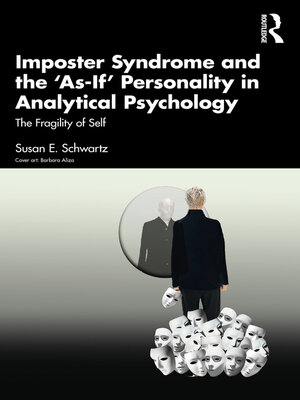Imposter Syndrome and the 'As-If' Personality in Analytical Psychology
ebook ∣ The Fragility of Self
By Susan E. Schwartz

Sign up to save your library
With an OverDrive account, you can save your favorite libraries for at-a-glance information about availability. Find out more about OverDrive accounts.
Find this title in Libby, the library reading app by OverDrive.



Search for a digital library with this title
Title found at these libraries:
| Library Name | Distance |
|---|---|
| Loading... |
This insightful book explores the 'as-if' personality through the lens of Jungian analytical psychology, illuminating how the same forces that can disturb personal development relationally, socially and culturally are equally an impetus toward expressing and relating with one's more complete self.
The book describes persons expressing an 'as if' personality as facing a conundrum around whether to hide or expose the truth of who they are. It describes the analytic container as a place of growth from that place, affecting person and culture, self and other. Using a myriad of clinical examples (across a range of cultures, contexts and personal experiences), the author describes people who are moving through feelings of not belonging, sexual addiction, ageing, the cultural influence of social media, the role of the father, and body image challenges. All these issues reveal the valuable recognition of the unconscious- a hallmark of Jungian analytical psychology- incorporates the dissociated others into selfhood. The theories of French psychoanalysts Andre Green on absence and the negative, Julia Kristeva on abjection, French philosopher Jacques Derrida on Narcissus and Echo and American philosopher Judith Butler on precarity expand the Jungian analytical thought to reflect the multiplicity of the psyche.
Using understandable language to interweave various psychoanalytical and philosophical frameworks, Imposter Syndrome and the 'As-If' Personality in Analytical Psychology: The Fragility of Self is both accessible to general readers and highly relevant to professional analysts, therapists, clinicians and social workers.







